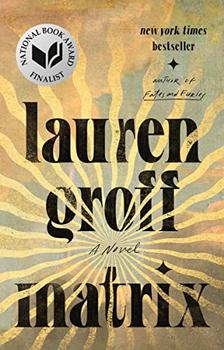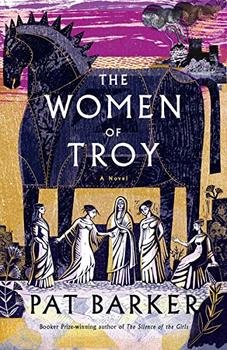Summary | Excerpt | Reviews | Beyond the book | Read-Alikes | Genres & Themes | Author Bio

A Novel
by Rebecca StottRebecca Stott's novel Dark Earth is a tale of loss, survival and love set in the brutal and compelling world of sixth-century Britain. After the exiled Great Smith dies, his daughters Isla and Blue must find a way to survive greedy warlords and accusations of witchcraft without the protection of kin. They are also keeping secrets. Their father taught Isla his trade despite the laws forbidding women from working in the forge; the firetongue swords that the lords covet were actually made by her. When that secret is revealed the sisters narrowly escape mutilation and slavery, taking refuge with a group of fellow outcasts amongst the ruins of Roman London.
At the heart of the book is the relationship between the sisters. In the five years since their exile, 20-year-old Isla and 17-year-old Blue have had only each other and their troubled father to rely on; now they are far less isolated but in greater danger. Together they must figure out who they can trust and find a way to safety, while also learning to accept their differences and the fact that they cannot be all things to each other. Isla's thoughts on her sister, ranging from devotion to annoyance and gratitude to resentment, will resonate with elder siblings throughout time and space.
This focus occasionally comes at the cost of depth in the other relationships in the book. While both sisters find love, readers interested in romance may be disappointed. Isla's love interest is more fleshed out than Blue's, but in both cases the emphasis is on how the new connection affects the sisters' relationship with each other just as much as the romance itself.
The vividly developed setting underlays every part of the book, giving the story a magical feel. Londinium's decay serves as a counterpoint to the characters' lives, creating a rich juxtaposition between what has been lost to time on a grand scale and what the characters personally have lost. Grief and trauma are major throughlines of the story. The recent death of their father is only the latest in a long list of losses for the sisters, including their home, their mother and their grandmother. Going back farther, there is the destruction of their ancestral home by flooding on their Seax (Saxon) father's side, and the subjugation of their people on their Ikeni (a native British tribe) mother's side.
Also brought to life are the characters' religions and superstitions. Myth and storytelling are both tools the sisters use to protect themselves against outside forces that threaten them. From the games they play as children, to the arguments they use to defend themselves, to the superstitious rumors that threaten violence, the characters' lives are steeped in the supernatural. The gods and their actions, as various characters perceive them, have a profound impact on the story.
Despite what is clearly extensive research and worldbuilding, some aspects of life are hinted at or referenced obliquely, and as a result readers unfamiliar with the time period may find themselves wishing for a bit more context on some of the historical aspects of the wider society the characters are navigating.
In Dark Earth, Stott tells a deeply personal story set amidst the sweeping tide of history. Moving and thrilling in turns, it is likely to be a favorite of readers who enjoy historical fiction and fantasy. Though set in a fascinating era very different from our own, its depictions of sisterhood, community and the struggle for survival against long odds are timeless.
![]() This review was originally published in The BookBrowse Review in September 2022, and has been updated for the
August 2023 edition.
Click here to go to this issue.
This review was originally published in The BookBrowse Review in September 2022, and has been updated for the
August 2023 edition.
Click here to go to this issue.

If you liked Dark Earth, try these:

by Lauren Groff
Published 2022
Cast out of the royal court by Eleanor of Aquitaine, deemed too coarse and rough-hewn for marriage or courtly life, seventeen-year-old Marie de France is sent to England to be the new prioress of an impoverished abbey, its nuns on the brink of starvation and beset by disease.

by Pat Barker
Published 2022
A daring and timely feminist retelling of The Illiad from the perspective of the women of Troy who endured it--an extraordinary follow up to The Silence of the Girls from the Booker Prize-winning author of The Regeneration Trilogy.
Your guide toexceptional books
BookBrowse seeks out and recommends the best in contemporary fiction and nonfiction—books that not only engage and entertain but also deepen our understanding of ourselves and the world around us.